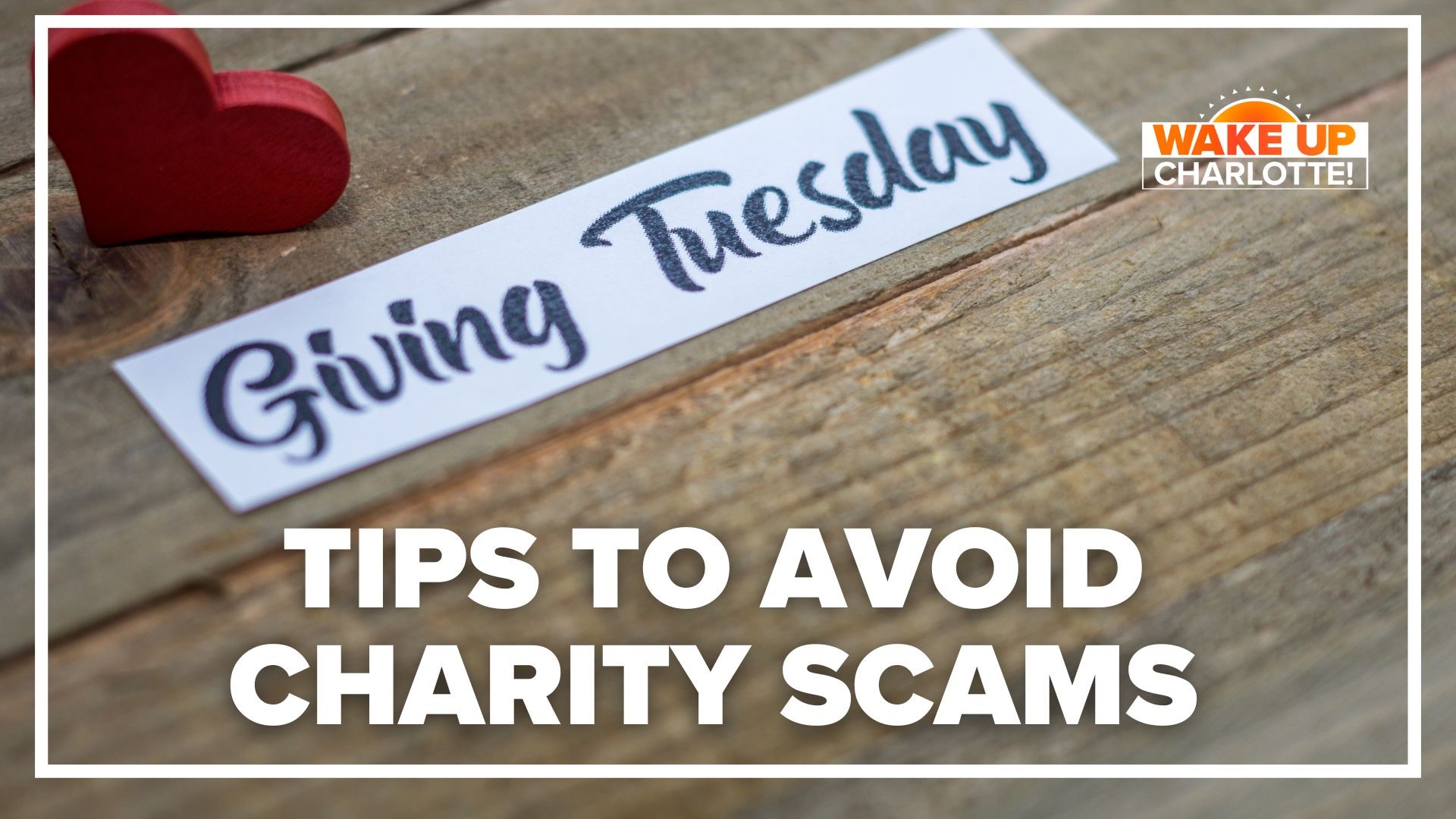CHARLOTTE, N.C. — Monday, Nov. 28, might be Cyber Monday, but think twice about spending all your cash. You could help make a difference if you save some for Giving Tuesday.
How do you know if your donation is going to the right place? Let's connect the dots.
Giving Tuesday was created a decade ago to help encourage people to do good. Last year, 35 million Americans donated $2.7 billion to charities. Everything from animal advocacy to housing equality and medical research raked in donations from every corner of the U.S.
But charity fraud takes millions of dollars a year in donations away from legitimate charities. Always double-check the websites where you're donating. Several websites, like Give.org, are linked to the Better Business Bureau to help protect your money.
Watch out for similar names. Questionable charities often choose names that sound like the real deal. For example, Wounded Warrior Fund is very similar to the legitimate Wounded Warrior Project.
And before you write that check, know the red flags of scams. Charities will never ask you to wire money or pressure you to donate immediately. The best advice is to give directly to your charity of choice and avoid giving over the phone.
Tips to avoid becoming the victim of a scam
Emotional appeal - Any pitch that ratchets up your emotion will inhibit your rational judgment.
Sense of urgency - You MUST act now, or else.
Request for unorthodox payment - Gift cards, prepaid credit cards, wire transfers, etc.
Explanations that don't ring true - If your new “landlord” can’t show you the inside of the house, that could be because they don’t own it.
You won, now pay up - It’s not a prize if you have to pay for it. Taxes, fees, shipping, whatever.
Too good to be true - That’s because it’s not true. Sorry, your long-lost relative didn’t die, leaving you millions. That car you bought online for a third of its Kelly Blue Book value doesn’t really exist. The son of a billionaire diamond broker didn’t “swipe right” on you and fall instantly in love. That work-at-home job paying you hundreds of dollars an hour for stuffing envelopes isn’t real.

